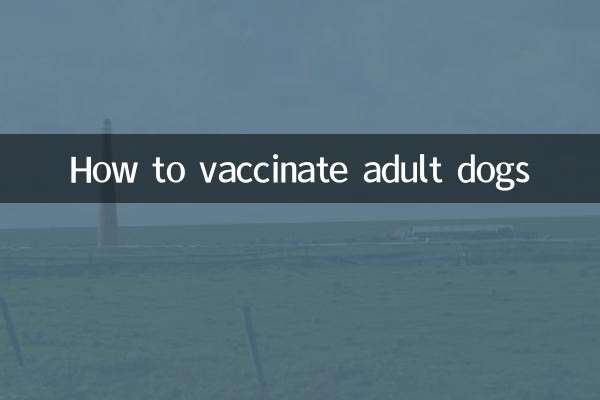What’s wrong with a dog’s nose bleeding?
In the past 10 days, among the hot topics about pet health on the Internet, "pus from a dog's nose" has become the focus of many pet owners. Pus from your dog's nose may be caused by a variety of reasons and requires timely diagnosis and treatment. Here's a detailed look at the problem, including common causes, symptoms, treatments, and prevention.
1. Common causes of pus in dogs’ noses

A discharge from a dog's nose is usually caused by infection, trauma, or allergies. Here are common causes and their explanations:
| reason | illustrate |
|---|---|
| bacterial infection | Bacteria invade the nasal cavity, causing inflammation and purulent discharge. |
| fungal infection | Fungus infects the nasal passages, causing pus and a bad odor. |
| trauma | The nose is hit or scratched, causing infection and pus. |
| allergy | Allergies to pollen, dust and other allergens can cause nasal inflammation. |
| tumor | Tumors in the nasal cavity may cause purulent discharge. |
2. Symptoms of purulent nose in dogs
In addition to nose discharge, your dog may also experience the following symptoms:
| symptom | illustrate |
|---|---|
| sneeze | Frequent sneezing, possibly with purulent discharge. |
| nasal congestion | Shortness of breath, snoring coming from the nose. |
| decreased appetite | Eat less due to discomfort. |
| fever | Increased body temperature may be accompanied by general malaise. |
| increased eye discharge | The eyes may become inflamed due to a nasal infection. |
3. Treatment methods for dogs with discharge from their noses
There are different treatments for different causes. The following are common treatments:
| Treatment | Applicable situations |
|---|---|
| antibiotic treatment | Pus discharge caused by bacterial infection. |
| antifungal drugs | Pus discharge caused by fungal infection. |
| Clean the wound | Pus discharge caused by trauma needs to be cleaned and ointment applied. |
| anti-allergy medications | Pus discharge caused by allergies. |
| Operation | Tumors or severe infections require surgical intervention. |
4. How to prevent pus from your dog’s nose
Prevention is better than cure, here are some tips to prevent your dog’s nose from bleeding:
| Precautions | illustrate |
|---|---|
| Clean your nasal cavity regularly | Clean the nasal passages with warm water or a pet-specific cleaner. |
| Avoid contact with allergens | Reduce your dog’s exposure to pollen, dust and other allergens. |
| Keep the environment clean | Clean your home regularly to reduce the growth of bacteria. |
| Nutritionally balanced | Provide vitamin-rich foods to boost immunity. |
| Regular physical examination | Detect potential health problems early. |
5. When Do You Need Medical Treatment?
If your dog’s nose discharge is accompanied by the following conditions, it is recommended to seek medical attention immediately:
Although it is common for dogs to have pus from their noses, it should not be ignored. Timely diagnosis and treatment can effectively prevent the condition from getting worse and ensure the health of your dog. If your dog displays similar symptoms, consult your veterinarian as soon as possible.

check the details

check the details